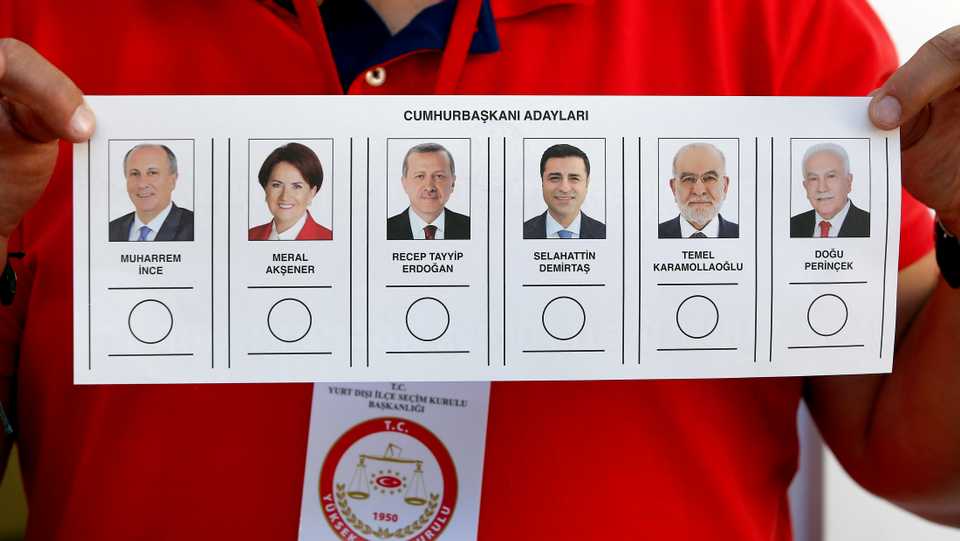
Turkey’s presidential candidates have made various promises regarding the economy ahead of the elections on June 24.
The economy is one of many hot-button issues the candidates are discussing on the campaign trail along with education and infrastructure.
Recep Tayyip Erdogan
Mega industry zones
Turkish President Recep Tayyip Erdogan announced five new mega industrial zones that will provide job opportunity to 100,000 people and includes $29.5 billion (140 billion Turkish liras) in investments.
“We are establishing mega industry zones in five regions of Turkey. We will upgrade Turkey’s industry and technology by providing employment to 100,000 people,” Erdogan said in a tweet.
Ülkemizin 5 bölgesinde Mega Sanayi Bölgeleri kuruyoruz. 100 bin kişiye istihdam sağlayarak Türkiye’ye sanayi ve teknolojide sınıf atlatacağız.
Vakit Üretim Vakti. Vakit Türkiye Vakti! pic.twitter.com/AN8N5KuLcr
— Recep Tayyip Erdoğan (@RT_Erdogan) June 17, 2018
The Turkish president shared details of the project, a graphic attached to his tweet and titled “National Breakthrough in Industry,” according to which $9.5 billion (45 billion Turkish liras) will be invested in the first stage of the project, providing 35,000 jobs.
The Canal Istanbul
Canal Istanbul, which will be parallel to the Bosphorus, will connect the Black Sea to the Sea of Marmara.
The canal will be nearly 25 km (16 miles) and the width will expand from 250 metres to 1,000 metres allowing maneuver space for marine vessels.
Erdogan called the Canal Istanbul the largest “strategic” project for the metropolitan city.
Turkish Transportation, Maritime and Communications Minister Ahmet Arslan said the government is expecting to generate approximately $8 billion revenue per annum from the canal project.
Indigenous car and motor
Erdogan’s other economic promise is regarding the indigenous car project, and he recently announced that Turkey is getting close to producing its own engine.
The project has the potential of decreasing Turkey’s $8.2 billion budget deficit and create 20,000 new job opportunities.
The president said, “Our electric automobile that will hit the roads in 2021 will contribute 50 billion euros to GDP, reducing oil dependency. It’s time for a local car. It’s time for Turkey,” on Twitter on June 12.
2021’de yollara çıkacak olan elektrikli yerli otomobilimiz, Gayri Safi Yurtiçi Hasılamıza 50 Milyar Euro katkı sağlayacak, petrol bağımlılığımızı azaltacak.
Vakit Yerli Otomobil Vakti. Vakit Türkiye Vakti! pic.twitter.com/kEcr8yruGg
— Recep Tayyip Erdoğan (@RT_Erdogan) June 12, 2018
“We will develop and deliver the first prototypes by the end of 2019 and enter production in 2022. Our indigenous cars will be something completely domestic and national. We talked through this with Tesla’s CEO Elon Musk during his visit to Turkey. The cars will feature world-class technology.” Erdogan said.
The project also helps to develop nearly a hundred sub sectors of car manufacturing from digital and information sector to driving systems.
Election manifesto
Turkey’s dependence on imports for domestic production and exports will decrease, according to the AK Party election manifesto.
The AK Party vowed to bring the inflation rate down to a single-digit level and solve the current account deficit.
The AK Party will increase the share of high-tech production on imports from four percent to 15 percent. The proportion of using the Turkish lira as a mediator on foreign trade will be promoted.
“I promise that inflation, interest rates and the current account deficit will fall, that the Turkish economy will become more resilient to external shocks and financial attacks, that Turkey’s investment appeal will increase,” Erdogan said on May 6.
AK Party vows to cut the unregistered economy by adding different fields of market activities into the economy.
Privatisation programs are said to be continued in the government tenure and henceforth.
In the framework of plans and targets of AK Party, Turkey hopes to become one of the top 10 economies of the world by 2023.
Muharrem Ince
Ince, the presidential candidate of the CHP, the main opposition party, has focused his message on building factories and creating more job opportunities.
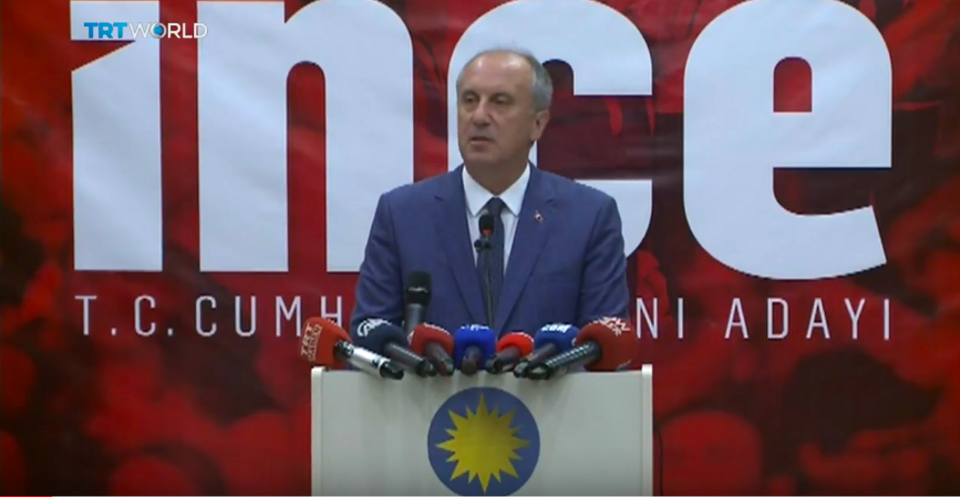
“I will find jobs for our children. I will build factories. I will educate our children well,” Ince said during a rally in Istanbul on June 10. He emphasised that the young generation can help Turkey overcome the economic crisis.
Ince vowed to bring in 60 million tourists as soon as possible if elected, saying it would generate up to $60 billion in revenue.
Election manifesto
According to Ince’s manifesto for the election, every single family will have a house and salary.
The Central Bank of Turkey will apply its monetary policies and state banks avoiding pressure from politics.
The income per capita will be increased above $15,000 in the first step.
Ince laid out plans to decrease inflation to five percent and interest rate to seven percent, while suggesting a current account deficit goal of three percent.
He also plans to provide diesel fuel to farmers at the price of three Turkish lira per litre. The current price is more than 5 Turkish lira.
He pledges to award extra scholarships to all students twice a year.
The CHP promises to give an extra salary to teachers on Teachers’ Day, which is celebrated every year on November 24, in Turkey.
The CHP plans to set up five development zones, using indigenous resources, in separate parts of the Anatolia.
The income tax on minimum wage will be lifted in addition to increasing the minimum wage. The minimum wage in Turkey is currently $336 (1,600 Turkish lira).
All privatisation processes of public economic enterprises on agricultural sectors will be cancelled.
The spending on research and development will be increased to three percent, the average of the European Union.
Meral Aksener
Iyi (Good) Party presidential candidate Meral Aksener announced her economic policies on May 7, by vowing to save 4.5 million people from debt, from credit cards to consumer loans.
If elected, she has pledged to establish the Turkey Solidarity Fund, 8 billion lira, in 100 days.
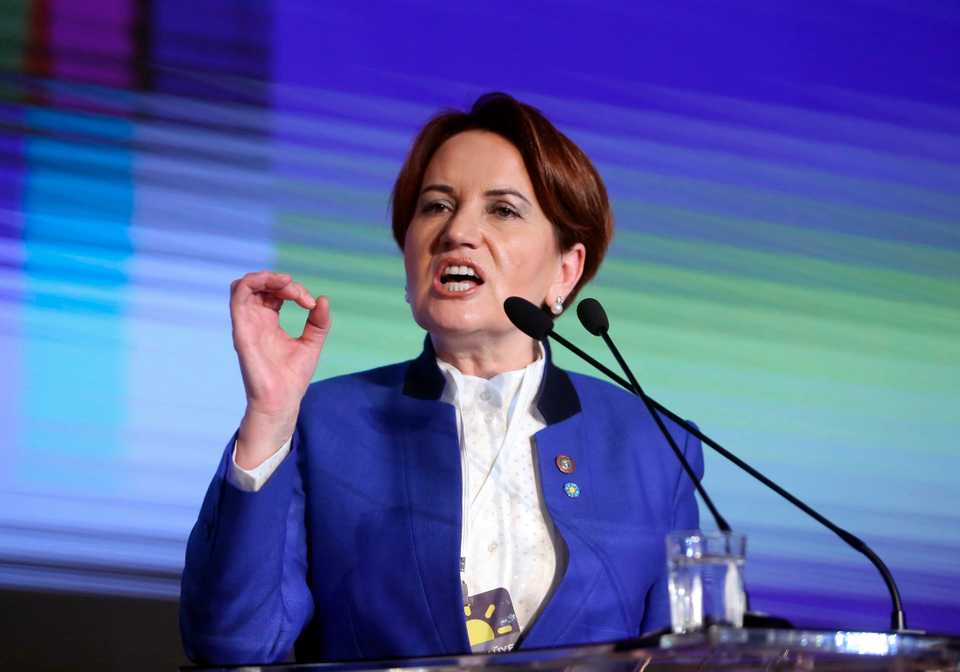
“We will purchase the debts from consumer loans, credit card and overdraft accounts of 4.5 million citizens whose debts are under legal supervision of banks or consumer financing companies and whose debts have been sold to collection companies as of April 30, 2018,” Aksener said.
Loans to people with low income and student debt will be reduced 80 percent, and remaining debts can be paid off in 10 years without interest.
“Thinking about the 10-year payment plan of our citizens, the cost will be low. We are perfectly aware that recovery through additional borrowing will not beneficial,” she added.
Aksener plans on paying for these programs economic without extra pressure on the budget; the money will be allocated from other programs.
She also pledges to cut diesel oil price from five lira to 1.5 lira per litre for farmers.
“We will give all our energy to the production,” she said on May 14.
Aksener promises to increase per capita income to $16,000 and GDP to $1.4 trillion. It is currently $851,046 billion according to the Turkish Statistical Institute.
She plans on tying the country’s economy to three main factors; macroeconomic stability, economic geography and accelerator sectors. The plans include driving down the unemployment rate to 5.6 percent and increasing female employment to 50 percent; it was 27.5 percent in 2015.
If she is elected president, she will lower the special consumer tax rate.
People’s Democratic Party and Selahattin Demirtas
Sezai Temelli, Co-head of HDP, has announced his party’s economic promises in a press conference on May 31.
Temelli sums up his Party’s economic program in three points: fair distribution, social rights and living debt-free.
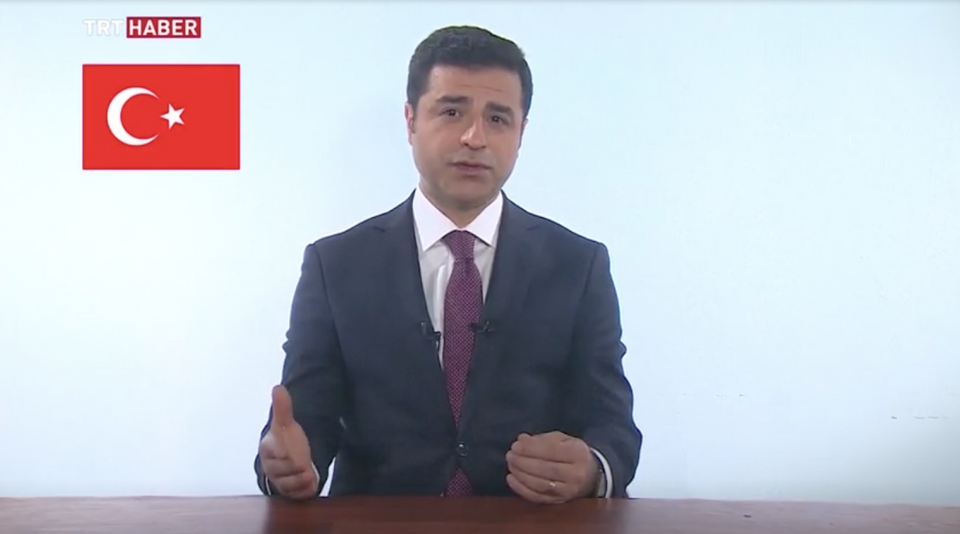
In the Fair Distribution Program, net minimum wage and pensioner salaries will be 3,000 lira. All public workers will get a 1,000 lira raise. State aids for agriculture will be doubled.
The Social Rights Program offers young people a card with a 500 lira budget per month.
The Debt-free Living Program will delete the interests of consumer credits and credit card debts and add debt restructuring.
All these programs cost 416 billion lira to the budget and will add five million jobs in five years.
Selahattin Demirtas, HDP’s presidential candidate, who has been arrested on terror charges since November 2016 over suspected links with the PKK , responded to a FOX TV anchorman’s question with Twitter posts on May 7.
“The biggest problem for the country’s youth is the deepening poverty. Ending poverty and inequality of opportunity will unleash the potential of the youth,” Demirtas said.
He promised, for the elderly, 50 percent discounts both for local and international flights and museums for free.
He added, “Every retiree without a pension will receive 1,000 liras each month. We will ensure severance pay and a retirement bonus, thus people will not hesitate to retire when they are ready. This way, we will create more jobs for young people.”
Temel Karamollaoglu
Temel Karamollaoglu, presidential candidate of the Felicity Party (Saadet Party), explained his party manifesto on May 27, in Ankara.
Karamollaoglu emphasised that his first priority is alleviation of the tax burden and establishing a fair tax system.
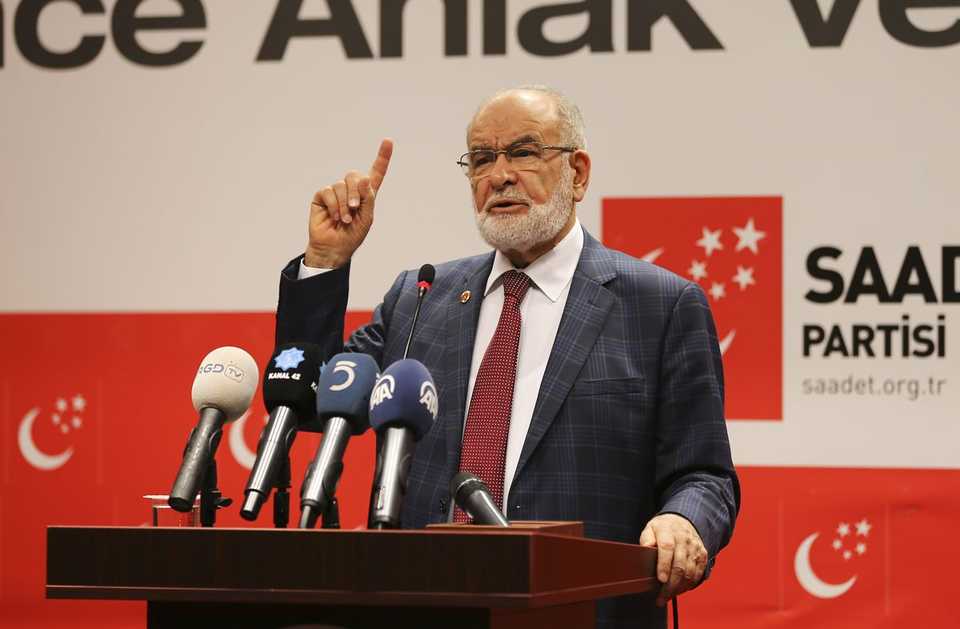
Minimum wage will be above the poverty line, according to his manifesto. Minimum wage will be exempt from tax in order to shield employers from tax burden.
Pensioners will be given extra money, under the ‘Wealthy Share’ program.
Within the scope of the Social State Project, the government will build a certain number of houses for families in the bottom income level.
Civil servants and all workers will have extra benefits in the two major religious holidays.
Dogu Perincek
Leader of Patriotic (Vatan) Party Dogu Perincek is running for president in the June 24 election. He announced his election manifesto on May 20.
Perincek offers a planned and mixed economy, like China and India, by promoting economic relations with China to make Turkey a production base.
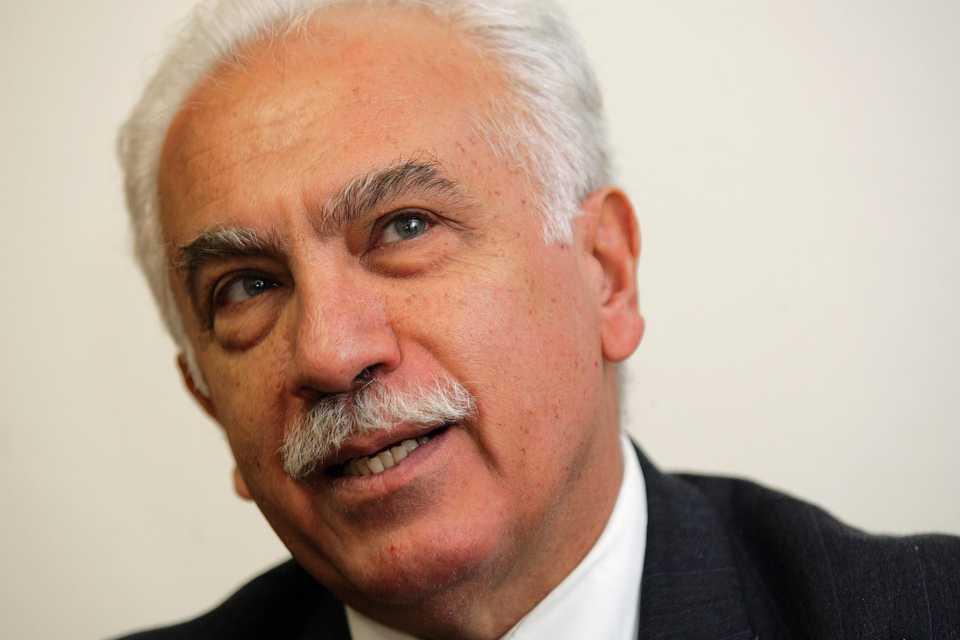
He intends to stop the privatisation process of state business enterprises and will nationalise privatised enterprises again.
He proposes a two lira per litre diesel fuel price for farmers.

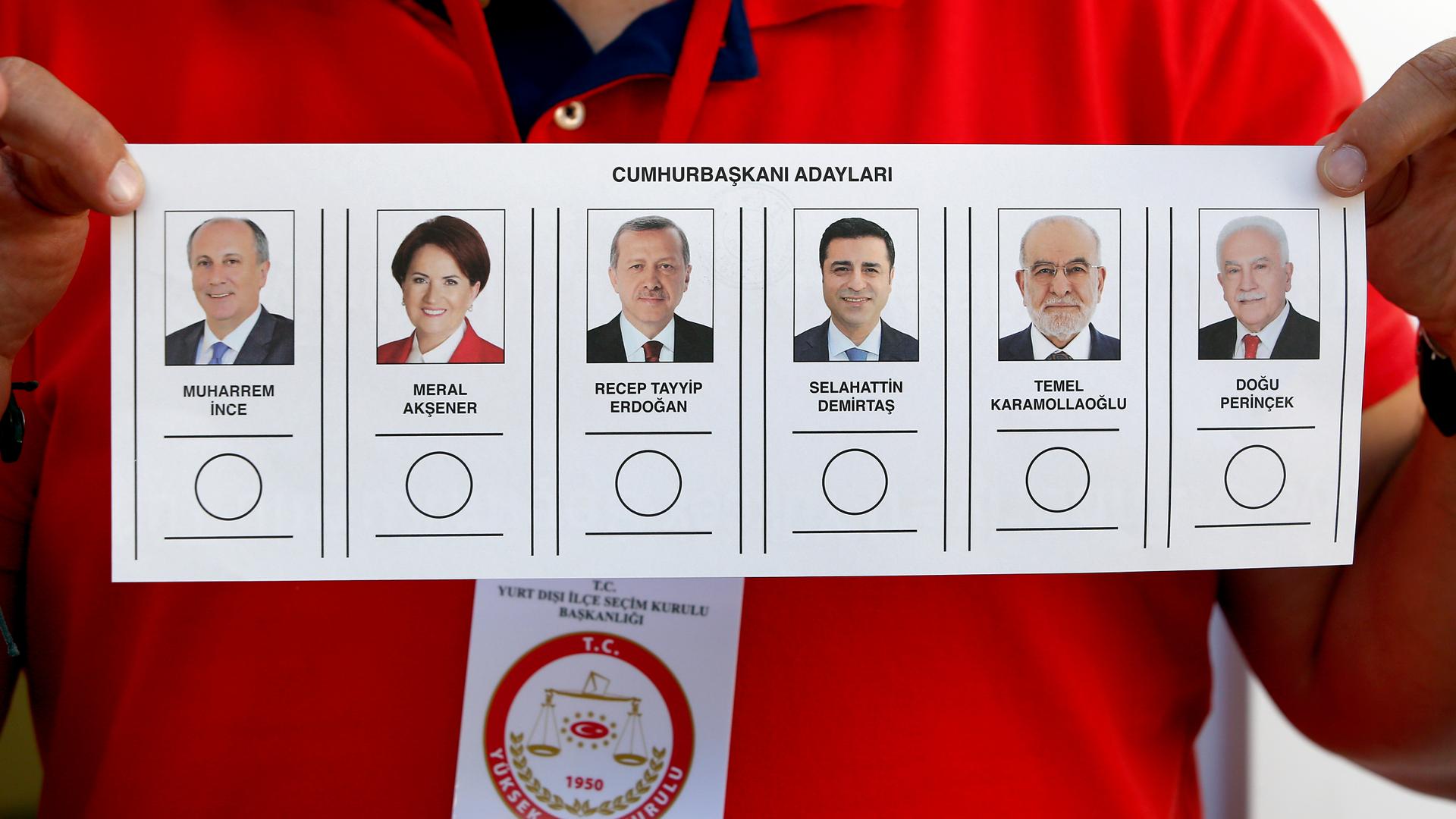








Discussion about this post